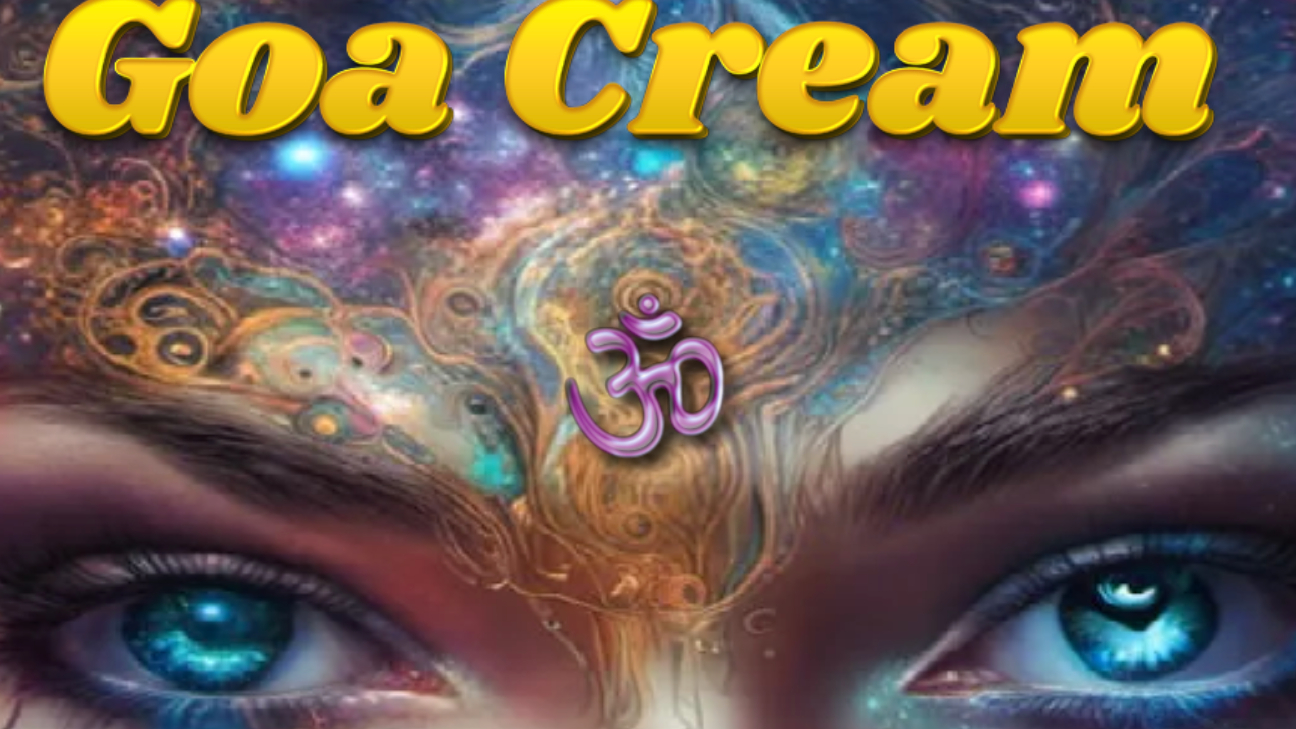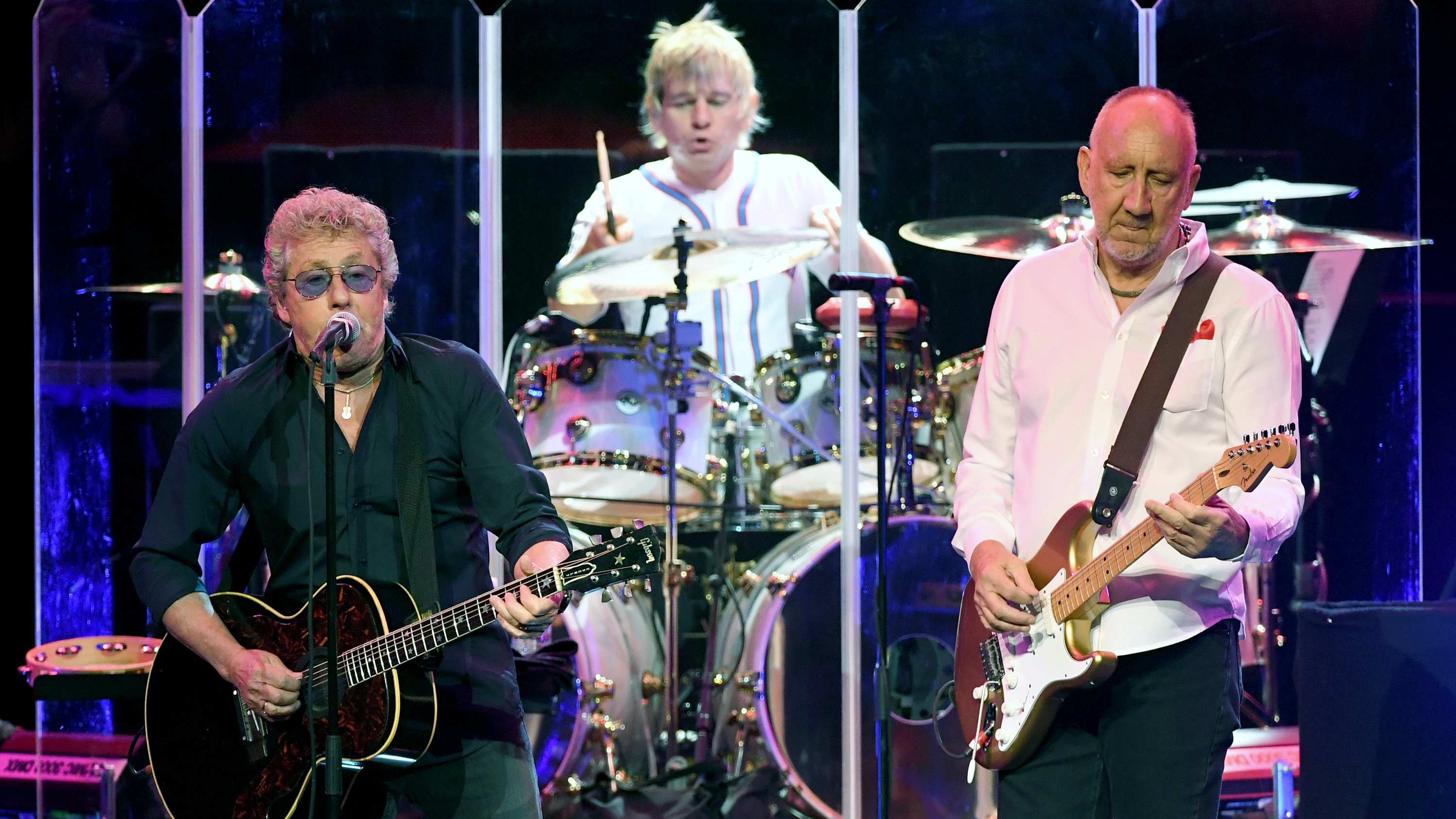
Fall Out Boy's Patrick Stump: the 10 records that changed my life
Although he’s two years younger than the compact disc, Fall Out Boy lead singer and guitarist Patrick Stump says that vinyl record albums were the central music-listening medium of his youth.
“That doesn't mean I was always allowed to play the records,” Stump says with a laugh. “I was the youngest in the family, and my parents didn’t want my peanut butter-covered fingers all over the grooves of the discs. For a while there, playing records myself was kind of this special, unattainable thing for me.”
Cassettes also figured into Stump’s early days, although the difficulties of trying to find key songs on the tapes proved somewhat frustrating for the young music enthusiast. “You had to fast-forward or rewind, and you never knew where you were half the time,” he recalls. “But you did get the side one and side two experience on cassettes, so they were like vinyl records in that way. That was cool.”
The internet was still on training wheels during Stump’s teenage years, so he sought out music at Record Surplus, which specialized in used product, in his hometown of Des Plaines, Illinois, and at a couple of shops in the nearby city of Evanston. Toward the end of high school, he even landed a job at Record Surplus. For Stump, the prospect of being paid to work in some capacity in the music business seemed unbelievably glamorous. Unfortunately, the stock at Record Surplus wasn’t always primo.
"Remember, it was a used record store in the suburbs of Chicago, not in the heart of the city," he says. "So there was a lot of Lawrence Welk and some of the unpopular Barbra Streisand records. Or you would find the record after the big hit by certain artists. We’d have first dibs on records that had a scratch or two on them. Sometimes we even picked through the dumpsters outside. Occasionally, there’d be something pretty good.”
It's been 11 years since Fall Out Boy released their gold debut, Take This To Your Grave, which they followed up with 2005's three-times platinum From Under The Cork Tree. Last year, after a brief hiatus, the group issued the chart-topping album Save Rock And Roll and hit the arena circuit. All of which means that Stump's dumpster-diving days are gone for good.
Surveying today's musical climate, he weighs in on the current singles vs albums debate: "People are still making great albums, but our focus is on singles. That’s OK, because for a while we forgot how to make a friggin’ single. It’s a pendulum that swings, and it’s important to have people who understand how to do both. I’m very grateful that there’s a Max Martin and a Dr. Luke and a Katy Perry pumping out these great singles. At the same time, that does make me kind of miss the album.”
On the following pages, Patrick Stump takes a stroll down musical memory lane and discusses what he considers to be 10 "life-changing" albums.
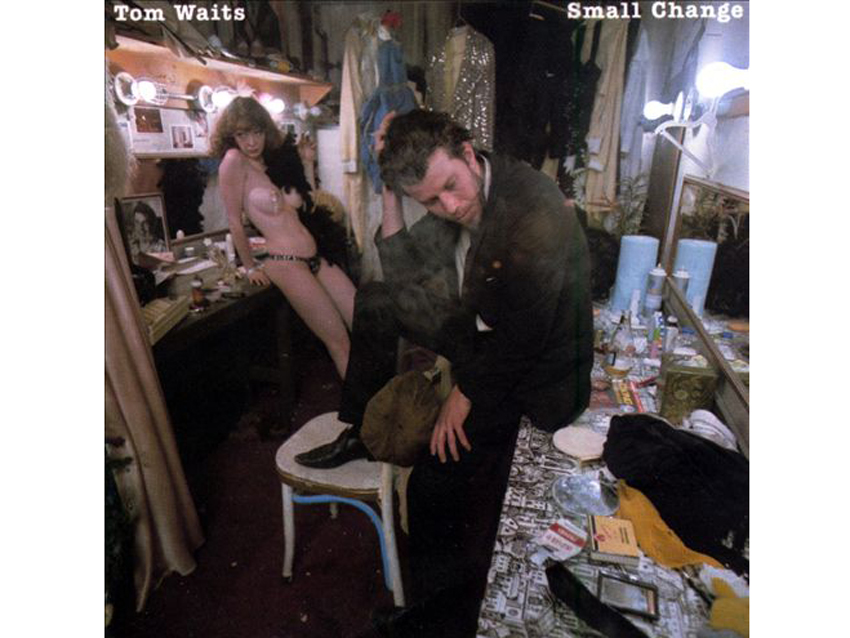
Tom Waits - Small Change (1976)
“This is somewhat arbitrary because this is the first Tom Waits album I ever really heard. Being a kid of the ‘80s, it’s a voice that’s just beyond the normal lexicon. He’s not Tom Petty or Elvis Costello – he’s kind of one removed. So I heard the name and the voice, but this is the first album that I listened to.
“It’s just genius. I love he way that he inhabits the character. The arrangements and the strings are so gorgeous, especially against his gravelly voice. And the lyrics are just bar none – he’s probably my favorite lyricist ever.”
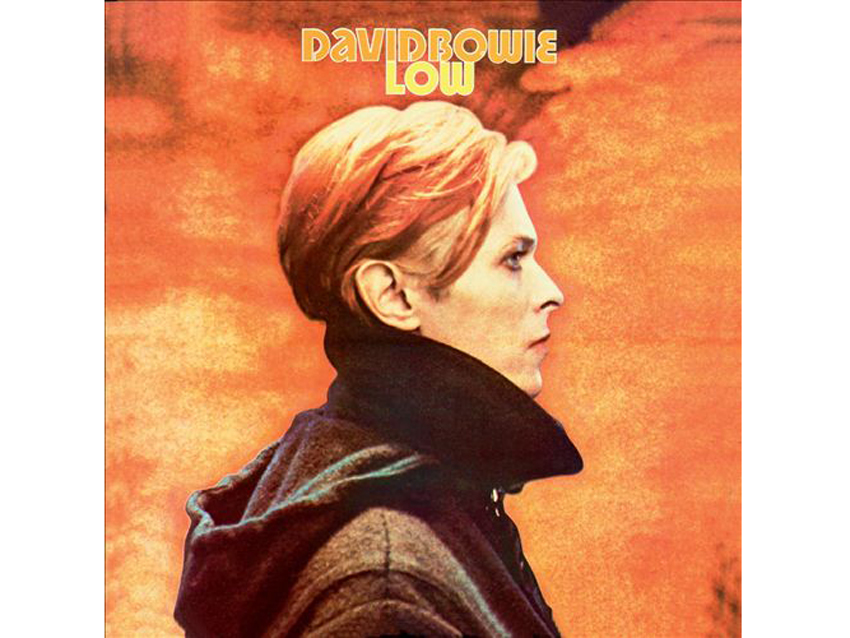
David Bowie - Low (1977)
“Ziggy Stardust established that David Bowie could be a superstar and a great songwriter. Low established him as an artistically avant-garde genius.
“The thing about Low is, it’s a totally different record when you flip it over. Side one is bizarrely easy-listening, easy-to-grasp pop songs with horribly freaky lyrics. Side two is an instrumental synth record, and it’s a really good one, too. It was just so 'out' and so different from the David Bowie that he had been up to that point. That really got me excited about him.
“It’s one thing to see a snapshot of somebody; it’s quite another to see two snapshots of the same person that are completely different. You stand back and think, ‘How do they connect?’ That’s fascinating to me.”
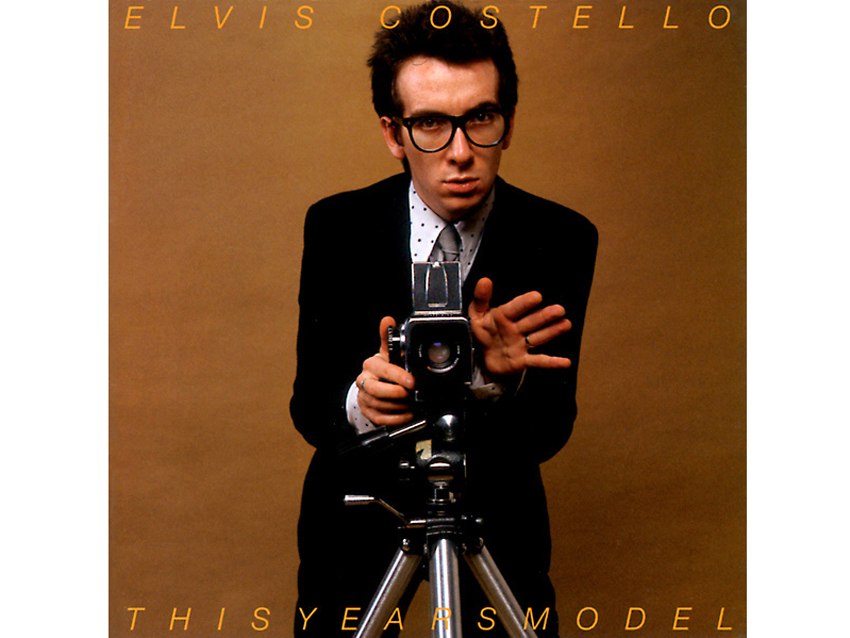
Elvis Costello & The Attractions - This Year's Model (1978)
“Anybody who owns a guitar and plays rock music has either die-hard respect or begrudging respect for his records. I’m a huge Elvis Costello fan, but this album in particular stands out.
“My Aim Is True is a brilliant mission statement, but it’s pre-Attractions. The energy is different on This Year’s Model. Elvis is playing off the Attractions, who are just amazing musicians. There’s a thrashy thing going on here. The band is almost green, like they’re just figuring out how they’re supposed to play together. That’s punk rock to me. It’s more punk rock than most punk-rock records.
“There’s so many layers to Elvis’ lyrics – they’re literate and full of so many unique observations. The fact that he could go from an album like this and then do something like Painted From Memory or write a song like Shipbuilding, that’s pretty awesome.
“By the way, the only records that I like Farfisa organs on pretty much all feature Steve Nieve.”
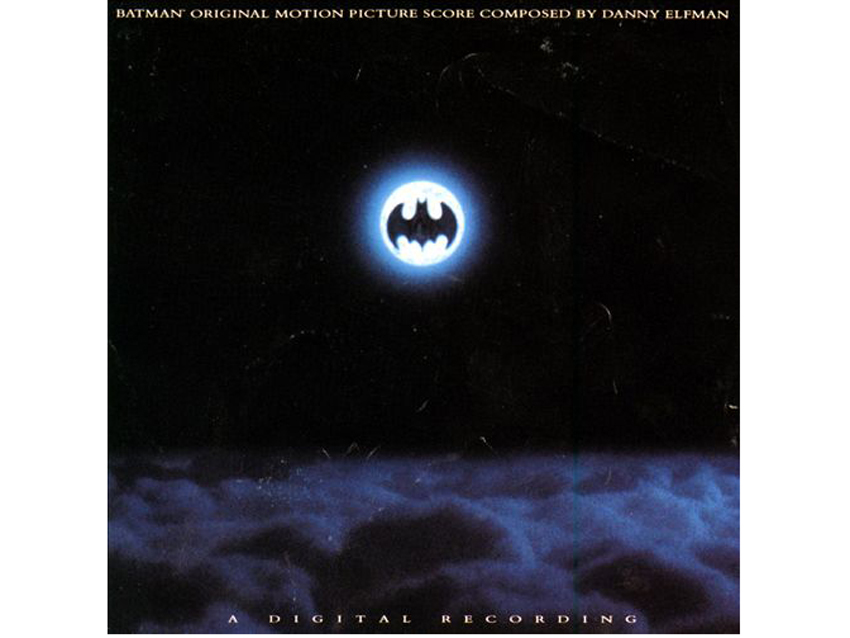
Batman: Original Motion Picture Score by Danny Elfman (1989)
“So the next two are basically tied. I'm including both Batman soundtracks because each one had a major impact on me. You know, I hear Danny Elfman all over our music, especially in the way I arrange strings or how some of the melodic passages work. I can trace those things right back to 1989’s Batman.
“To this day, I’m obsessed with this score. I miss that era of film composing, because right after that it seemed as if every movie had to have this big, grandiose score. We’re in an amazing time for scoring now, but it leaves a lot of space for the story to be told. Dammit, sometimes it’s nice to get in the way of the story.” [Laughs]
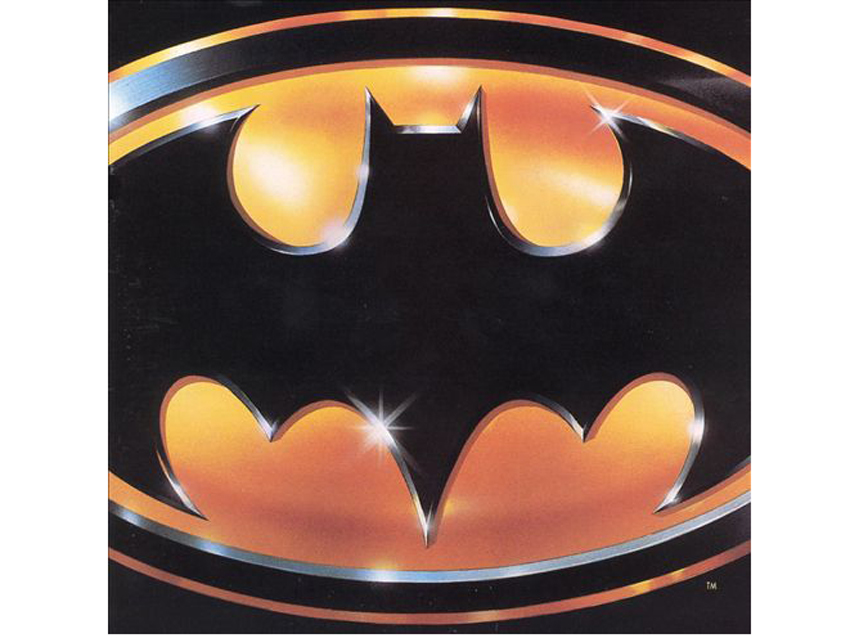
Prince - Batman: Motion Picture Soundtrack (1989)
“This is a funny one. I was thinking a lot about Prince, like, ‘Man, how do I get him on here?’ He’s such an influence on me but in a way that's almost hard to describe.
“My brother bought this record thinking that it was going to be the Danny Elfman score. But it was Prince, and he was like, ‘Ah, I don’t really want this.’ Man, I loved that tape – I wore it out. It was my first Prince record, too, my first real understanding of him. Being a white kid from the suburbs, I didn’t have a big indoctrination in funk and R&B, so I was getting that from Prince. And I was getting Prince, who's a genre unto himself.”
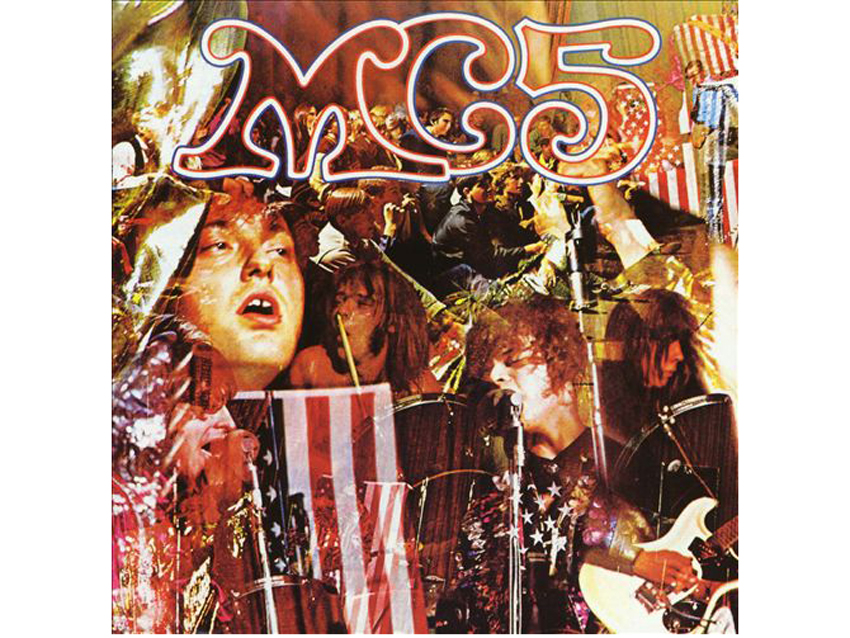
MC5 - Kick Out The Jams (1969)
“I’m trying to remember where I first heard the MC5. I think The Presidents Of The United States did a cover of Kick Out The Jams on their big record. Being a little kid at the time, that was prime time for me to listen to that.
“I was always kind of curious about the song; it was one of those phrases that would pop up. I tried to find the MC5 record – this was pre-iTunes or YouTube. I located one on eBay, but it was too much money. But then I managed to find one in, of all places, the dumpster behind the record store. It was like finding the Ark of the Covenant. A light was shining down on this record from up high.
“It was the most punk-rock record I’d ever heard – by being the least concerned about being punk rock. There’s no way I could have seen the band in their era, but in my head they’re the coolest band that ever existed. This record is the mission statement.
“Being from the punk scene myself, one of the things that always pissed me off about punk was its rules. You can’t dress a certain way because that’s what pop people wear. Don’t use melodies like this – pop people do that, too. The one thing about the MC5 and especially Kick Out The Jams that hit me so hard is, it’s musical shit. The melodies and harmonies that shouldn’t be in punk rock are there, and they did it hard.”
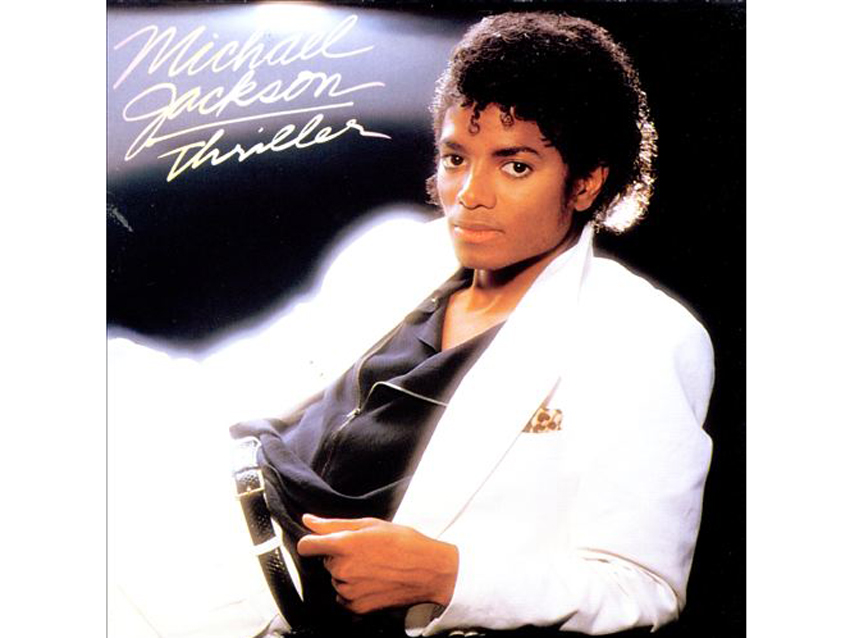
Michael jackson - Thriller (1982)
“One of the things that I loathe is when somebody will choose something artsy just for the sake of trying to impress somebody else with their knowledge of obscurity. I could’ve padded a list of the ’10 records that changed my life’ with, I don’t know, Ornette Coleman or whoever, but I didn’t want to go there. And besides, Thriller is… it’s everything.
“The album predates me, so it’s the kind of thing that was always there. Bad came out in ’87, but Michael was putting out singles from Thriller all the way up to that. As a toddler, I was hearing those singles over and over again. It was still very, very fresh and relevant to me.
“The thing that I find so fascinating about a record like Thriller is, it was so big. It was so defined and so Michael Jackson that nobody even bothered to knock it off. That’s a feat. I’ve seen people make allusions to it visually, and I’ve heard people make allusions to it in spirit. But I’ve never heard of anybody sitting down and saying, ‘OK, I want to write Baby Be Mine,' or 'I’m going to write a song like Thriller.’ Thriller was the last song that sounded like Thriller.
“If anything, that makes me want to stand up for the album even more. There’s always going to be some snooty rock snob who’s going to be like, ‘Ah, you know, Thriller… whatever.’ But it’s like, ‘No, man. For real. This record is everything that they say it is. It’s that good.’”
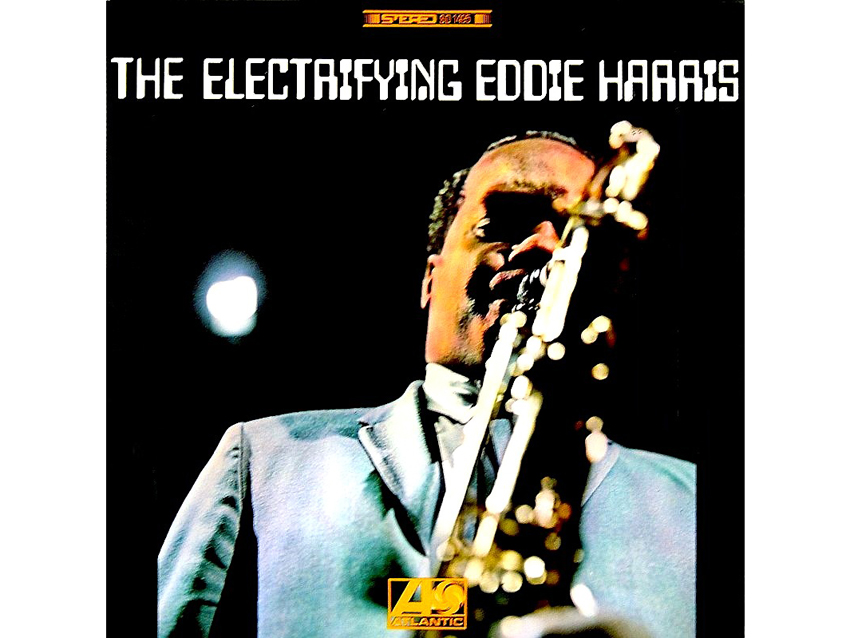
Eddie Harris - The Electrifying Eddie Harris (1967)
“This was a really big thing for me. My dad was a folk musician, but before he quit and got a real job, he had a folk-fusion band. The closest thing I can compare it to is Joni Mitchell’s band that she had with Jaco Pastorius. It was kind of like that.
“So fusion jazz was always around me as a kid – that’s a sentence I’ve only heard come out of my own mouth. [Laughs] Eddie Harris is easily my favorite player ever. The things I like about him are, he can be really impressive and wow you with a really wild run, but more often than not, he’s going to rely on a really good rhythm and melody. It’s almost like the really delicate pop version of weird, left-field music.
“I read a review of him once that said he needed gimmicks, which is untrue – he doesn’t. And then he has the gimmick, and that’s awesome. Like, if you take the gimmick out, it’s still really good music, but put the gimmick in and it’s even more fun.
“The Electrifying Eddie Harris is the album that kind of establishes that he’s the guy who runs the saxophone through a synthesizer, which is just a wild idea. But from there he has albums where he sings through a trumpet bell, or he invents hybrid instruments, like a saxophone-fingered instrument with a trumpet mouthpiece. But he always made hummable songs that stuck in my head. I really love this album.”
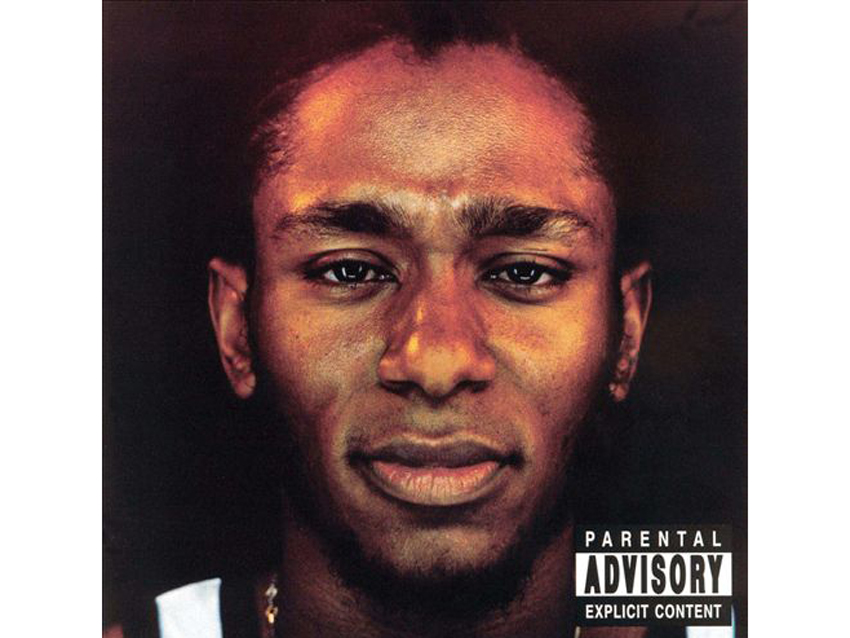
Mos Def - Black On Both Sides (1999)
“Hip-hop was a funny thing for me. In the ‘90s, Tupac was the biggest thing, but I kind of missed that boat. I was there, but I wasn’t paying attention. The things that got me instantly about hip-hop were A Tribe Called Quest and De La Soul. I liked it when the focus was on lyrical wordplay. I also liked it when there was an awareness of the culture that came before you.
“Coming into the late ‘90s and early 2000s with that kind of appreciation for hip-hop, Black On Both Sides was an explosion to me. If there’s such a thing as backpacker hip-hop music, this is the best album ever in that way.
“It’s a little crazy that Mos Def isn’t so well known as an MC anymore; I think everybody knows him as an actor – and he’s a great actor, as well. He’s one of those guys who is just unfairly talented. But, man, is this record good. I respect the hell out of anybody who can craft a pop song that makes you think. He’s got a lot of songs like that on this record. I know every word to it, so there you go.”
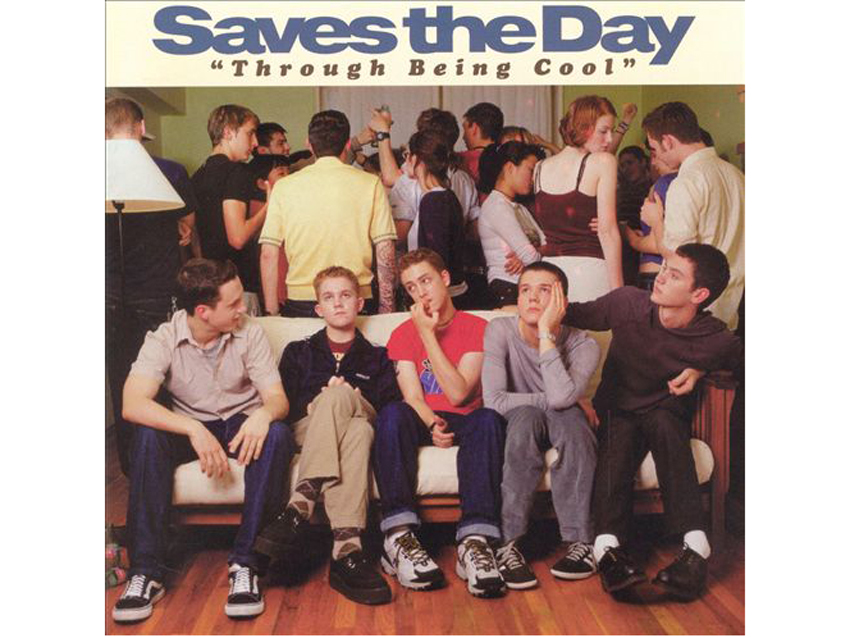
Saves The Day - Through Being Cool (1999)
“I wanted to be honest with myself and everybody else. I thought about it: ‘What do I include in the last spot? Do I put Joe Pass? Herbie Hancock?’ And I said, ‘I’ve gotta be honest. The title is The 10 Records That Changed My Life.’
“If you look at the rest of my list, I think you can get a sense of a kid who worked at a record store, a guy who had a potentially snobby outlook on music. Even though I included Thriller, there’s an almost elitist outlook on things. I’ve met people with the same list who I wouldn’t hesitate to call elitist.
“I was working at a radio station, and part of my job was to listen to new submissions from labels. This record came in, I listened to it and made the judgment call of ‘Well, it doesn’t really fit the format, so we probably won’t play it.’ At the same time, I loved it.
“It became something of a guilty pleasure for me: ‘Oh, it has melodies. It’s got distorted guitars.’ But it really wasn't a guilty pleasure – it’s a really wonderful record. And from there, I ended up in a pop-punk band, exclusively because of Through Being Cool. There’s no chance I would have been in Fall Out Boy if it weren’t for this record.
“A week or two later, I met Joe [Trohman] from Fall Out Boy and struck up a conversation with him, and that’s how we started the band. My understanding of anything like this, up to that point, was The Descendents or Kid Dynamite or Dillinger Four. Through Being Cool – there’s a freedom on the record. All those rules I was talking about? There’s no rules here. It’s just a good, energetic, young punk record that’s earnest and real.”

Joe is a freelance journalist who has, over the past few decades, interviewed hundreds of guitarists for Guitar World, Guitar Player, MusicRadar and Classic Rock. He is also a former editor of Guitar World, contributing writer for Guitar Aficionado and VP of A&R for Island Records. He’s an enthusiastic guitarist, but he’s nowhere near the likes of the people he interviews. Surprisingly, his skills are more suited to the drums. If you need a drummer for your Beatles tribute band, look him up.
"At first the tension was unbelievable. Johnny was really cold, Dee Dee was OK but Joey was a sweetheart": The story of the Ramones' recording of Baby I Love You
"Reggae is more freeform than the blues. But more important, reggae is for everyone": Bob Marley and the Wailers' Catch a Fire, track-by-track
"At first the tension was unbelievable. Johnny was really cold, Dee Dee was OK but Joey was a sweetheart": The story of the Ramones' recording of Baby I Love You
"Reggae is more freeform than the blues. But more important, reggae is for everyone": Bob Marley and the Wailers' Catch a Fire, track-by-track







